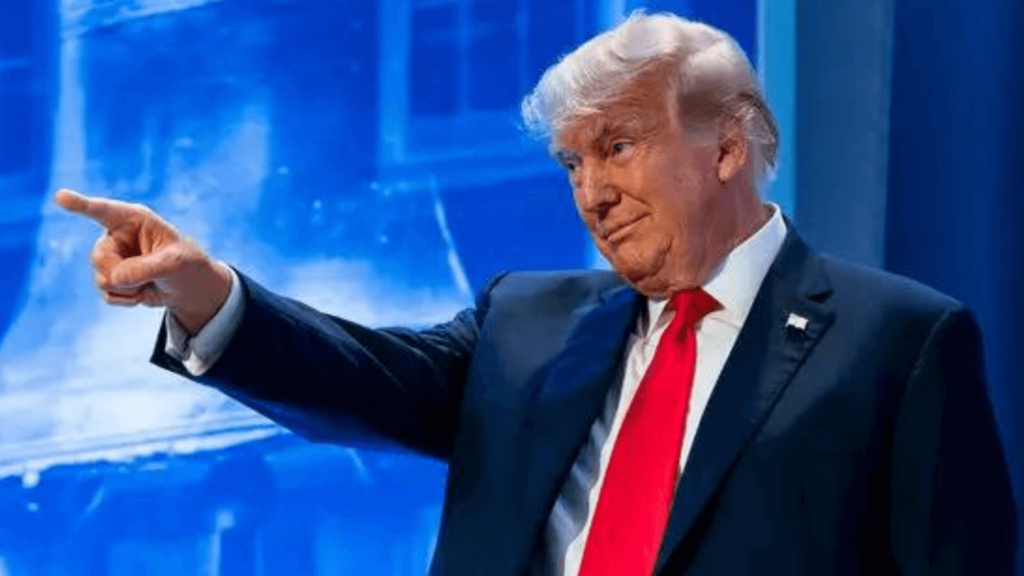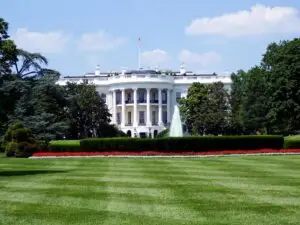Even in the tumultuous landscape of American politics, the resurgence of another Trump administration raises profound questions about the state of our nation. Despite his involvement in an insurrection, facing a staggering 91 charges, and a litany of other controversies, why is Trump allowed to run and why does he reportedly lead in certain national polls? The answer lies in a confluence of factors driven by deep-seated white fears, unwavering loyalty, and the normalization of his disruptive behavior, all underscored by a fervent devotion from segments of white America.
Again, at the core of Trump’s enduring appeal is a palpable fear among many white Americans – a fear not of Trump’s authoritarian tendencies, but rather, a fear of relinquishing power and privilege in a rapidly evolving societal landscape. Rather than rejecting Trump outright, many view him as a protector of their status quo, a bulwark against perceived threats to their way of life. This fear cultivates an unwavering loyalty that blinds supporters to Trump’s transgressions and fosters a steadfast allegiance that defies rationality.
Furthermore, Trump’s ability to maintain his hold on power is bolstered by the normalization of his behavior. Instead of conforming to established norms and principles, Trump’s brazen disregard for convention has forced the nation to adapt to his unorthodox and dangerous leadership style. His attacks on democratic institutions and disdain for the rule of law have become distressingly commonplace, eroding public trust and imperiling the very foundations of American democracy.
The emergence of a cult-like reverence for Trump, particularly among white evangelicals, presents a troubling manifestation of his influence. MAGA has transcended mere political allegiance to become a quasi-religious movement, with Trump elevated to near-deific status. This fervent devotion, reminiscent of past cults, exacerbates societal divisions and hampers efforts to foster unity and understanding.
Trump’s history of racially charged rhetoric and actions further underscores the complexities of his candidacy. From discriminatory practices to his propagation of birtherism targeting President Obama and many instances of racism, Trump’s unabashed bigotry undermines the principles of racial justice. His first administration’s implementation of anti-black, anti-civil rights policies further highlights the corrosive impact of his personal prejudices on national policy.
Moreover, Trump’s deference to autocratic leaders like Vladimir Putin and his mishandling of the COVID-19 pandemic raise serious concerns about his fitness for office. His admission to downplaying the severity of the pandemic for political gain, coupled with his administration’s failures in containing the virus, have exacted a devastating toll on American lives and underscored his disregard for public welfare. Dr. Deborah Birx, his former COVID-19 response coordinator, estimated approximately 500,000 died needlessly. This fact alone should disqualify him, not to mention the insurrection he led and his racism.
As the specter of another potential Trump presidency looms large, it is imperative to confront the underlying factors driving his enduring relevance in American politics. The erosion of democratic norms, the normalization of disruptive behavior, and the proliferation of a cult of personality around Trump threaten the very fabric of American democracy. In the face of such daunting challenges, the imperative to defend democratic ideals and uphold the rule of law has never been more urgent. Only through informed civic engagement and a steadfast commitment to inclusive values can our nation navigate these turbulent waters and forge a path toward a more prosperous, safe, equitable and just future for all.






